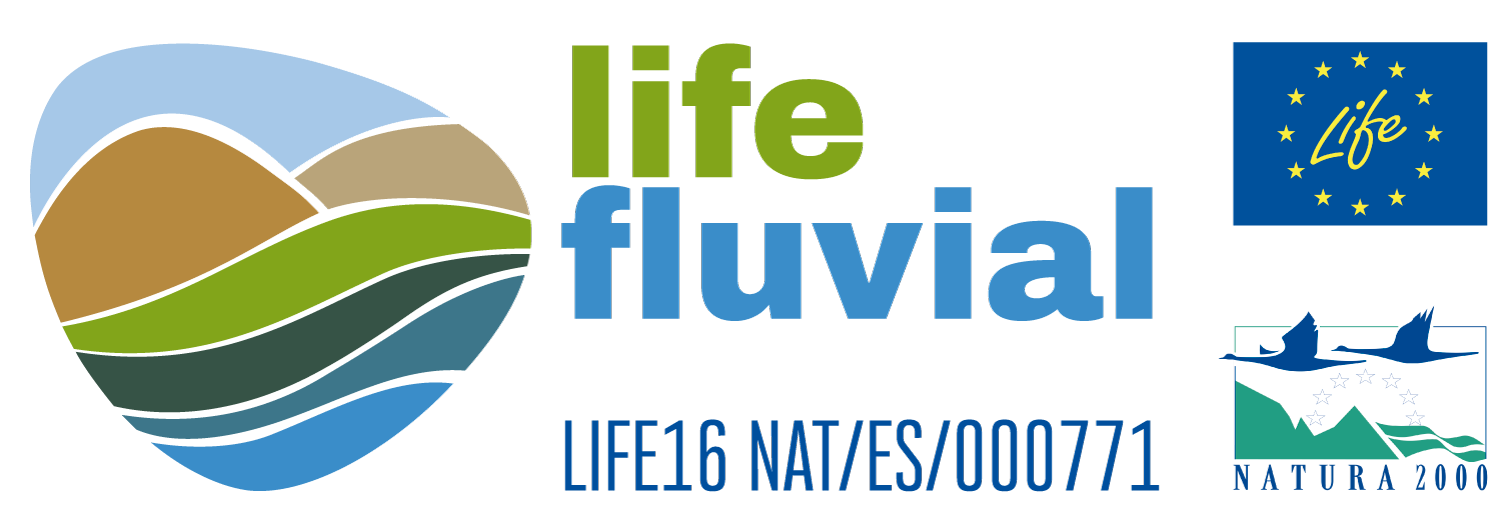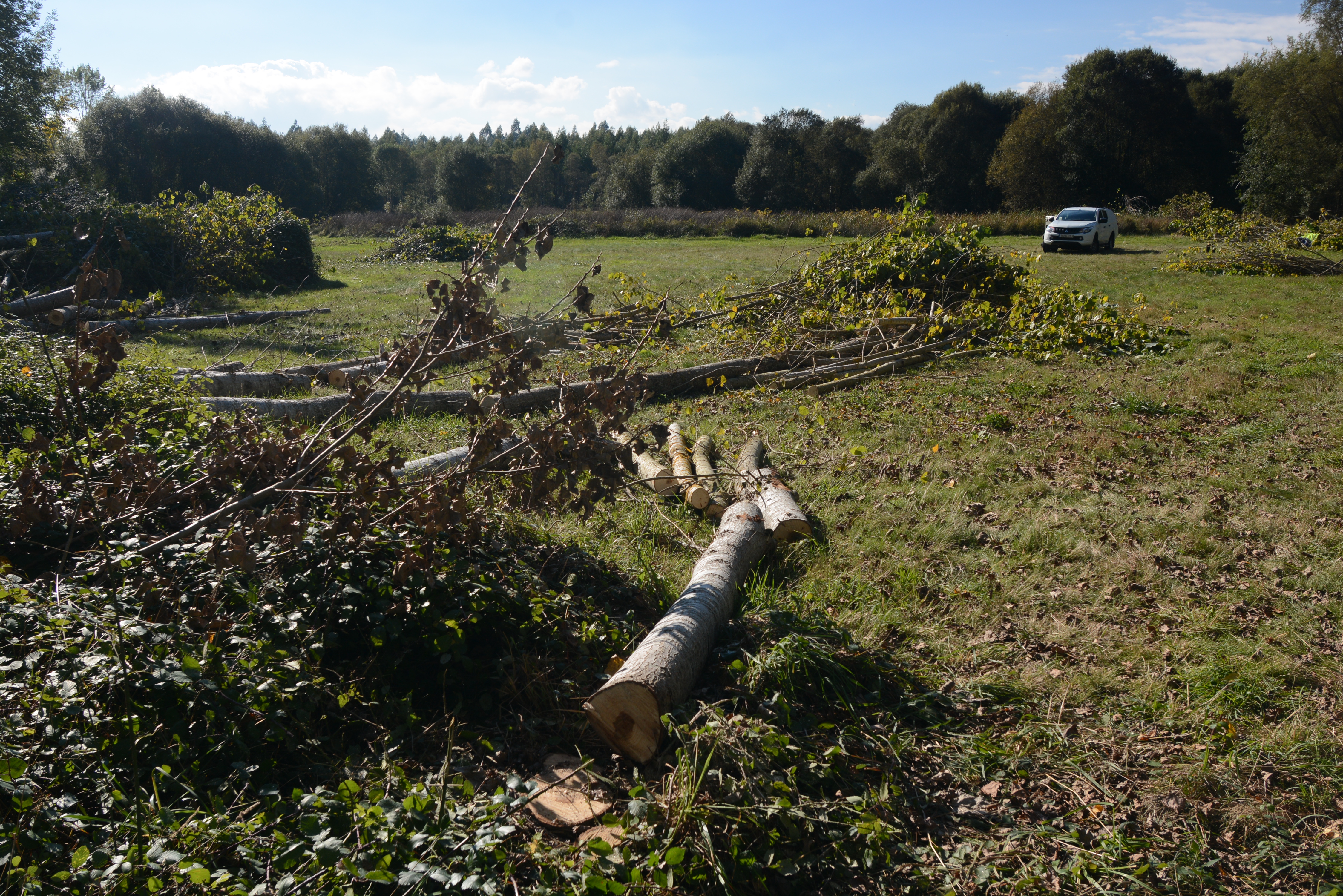In the framework of the LIFE FLUVIAL project (LIFE16 NAT/ES/000771), the first phase of the works in Lagoa do Rei (ZEC Parga-Ladra-Támoga, ES1120003) has finished last Wednesday 7th November. Since 15th October, the company TRAGSA, advised by IBADER (University of Santiago de Compostela), both partners of the project, have been removing more than 250 individuals of Populus x canadensis. A large part of these specimens were large (over 20 metres high and 50 centimetres in diameter) and seed producers, and therefore acted as a focus of invasion of nearby natural ecosystems, causing competition with native species. This action has been carried out without affecting these ecosystems, mainly the wet willow forests in the northern part of the lagoon, considered a priority habitat 91E0* according to the Annex to Directive 92/43/EEC. Other exotic species were also removed, such as 20 individuals of Pinus radiata. The wood was given to the neighbours of Rábade.
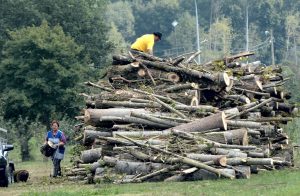
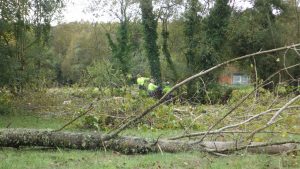
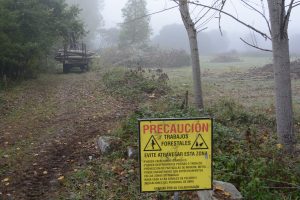
In the section of the river Miño in Rábade, exotic and invasive species will be eliminated in order to subsequently restore the riverside vegetation with the typical species of the 91E0* habitat.
The general objective of LIFE FLUVIAL is to improve the conservation status of Atlantic river corridors in the Natura 2000 Network. For this purpose, the project develops a transnational strategy for the sustainable management of their habitats in several Atlantic river basins of the Iberian Peninsula (Galicia, Asturias and Northern Portugal). Transnationality is one of the strong aspects of the project, since it is the result of collaboration between 8 public bodies, companies and associations from Galicia, Asturias and Portugal.
The LIFE FLUVIAL LIFE16 NAT/ES/000771 project, “Improvement and sustainable management of river corridors in the Iberian Atlantic region” is coordinated by the University of Oviedo, and has a budget of 3,032,223 €, of which the European Commission grants a co-financing of 75%, which is the maximum percentage that the LIFE call grants to those projects that are considered a priority for their execution and implementation. The duration of the project will be 48 months, running from 1 September 2017 to 31 August 2021.
